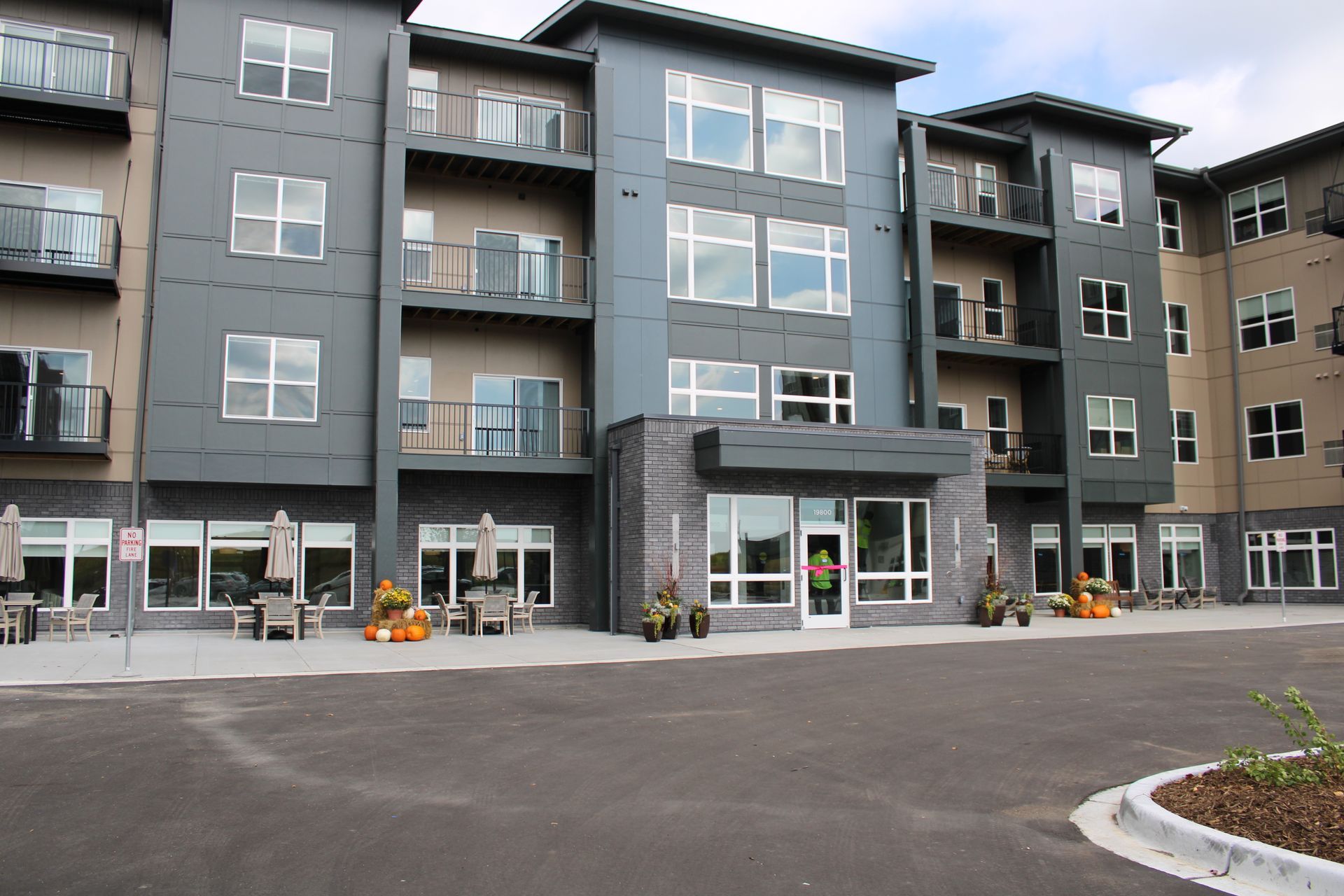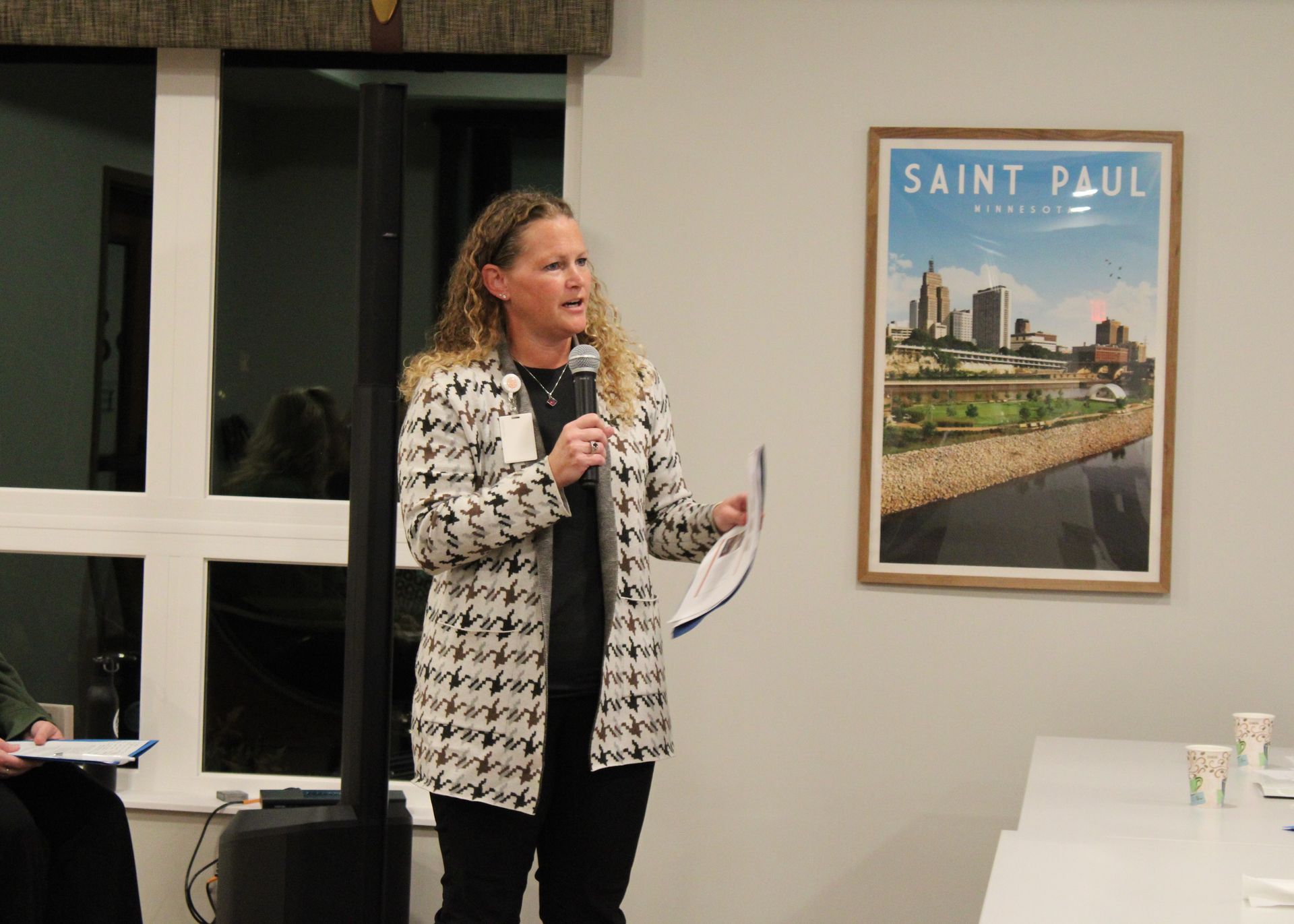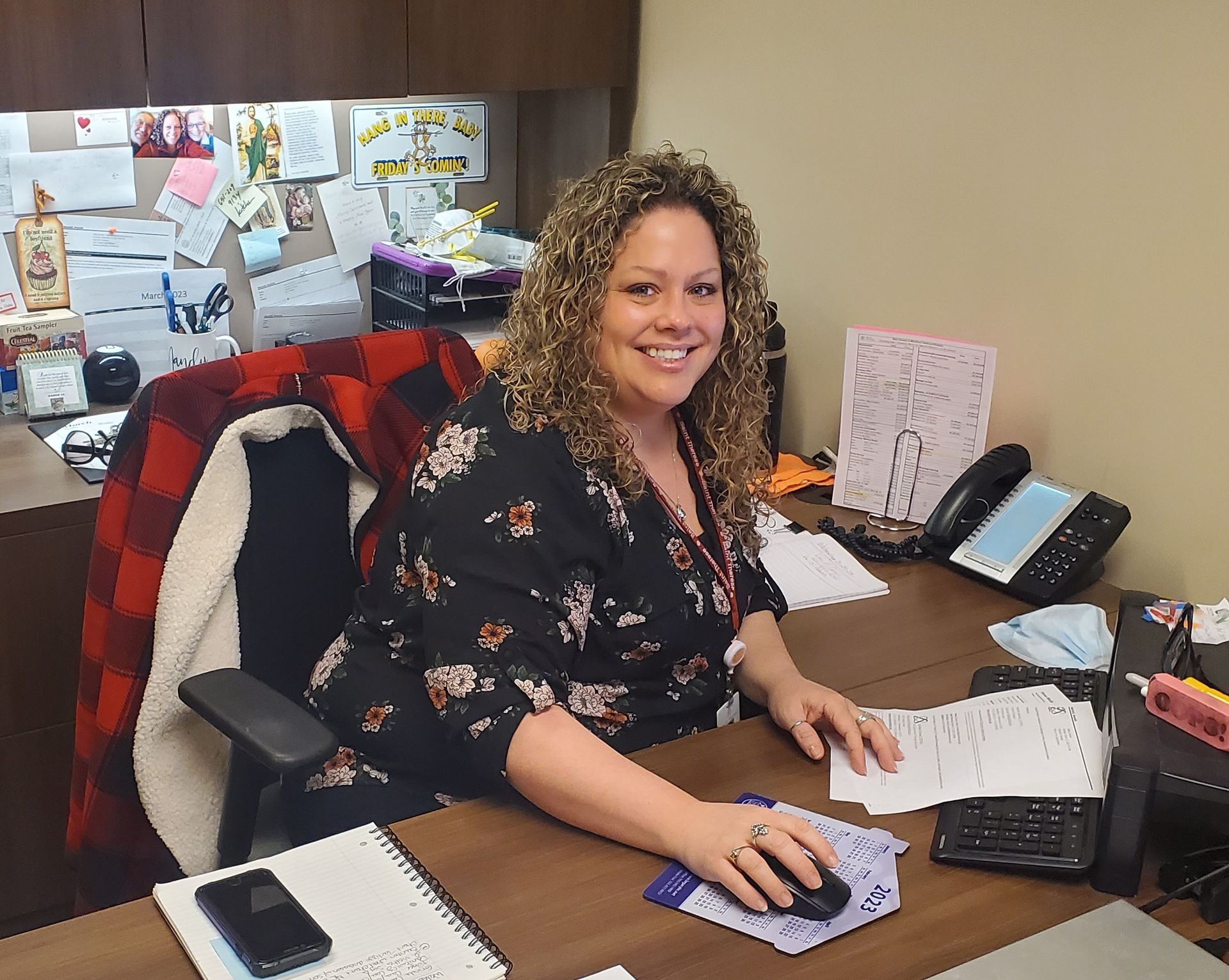
Indispensable = Social Workers
The textbook definition of a social worker goes something like this: “Social workers are professionals who aim to enhance overall well-being and help meet basic and complex needs of communities and people.”
That rather sterile definition hardly explains the variety and fast-paced nature of what social workers do. In fact, “indispensable” was how a member of the clinical faculty at the University of St. Thomas recently described them.
To better understand what our social workers do at Saint Therese senior communities, we talked to the social workers that head up their respective teams in Brooklyn Park, New Hope and Woodbury. We came away with a much richer grasp of the key role they play alongside the more visible role of nursing, the critical resource they are for families and residents, and the joy they get from their job.
Chelsie Plath, LSW, has been at Saint Therese at Oxbow Lake for more than five years and distinguishes what they do this way, “Part of our role is to remind the resident and the team that in addition to the medical needs, we need to provide the psycho-social care.” For instance, in a transitional care unit (TCU), the goal is to rehab the resident, but social workers get involved from the time of admission through to the discharge stage and everything in between that isn’t medically focused. They counsel, provide resources and referrals to families and residents and get them emotionally ready to be discharged and everything in between.
Chelsie said social workers need to be a jack of all trades. “You have to be flexible in your day and handle whatever falls onto your plate. I start out with a rough draft of what my day will look like, but most days you shift your plans based on the needs of your residents.”
She said a good day is when she knows that the resident and staff are happy. “It fills my cup. It means we’re doing something right and that the effort we’ve put in is making a difference.”
Chelsie and her colleague Chloe Johnson handle the social work duties for 64 residents in the TCU and long term care.
When asked what makes a good social worker, Chelsie said someone who is empathetic, who listens, is willing to be an active part of the interdisciplinary team and is the best advocate for the residents.
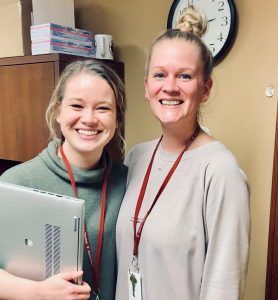
Michael Benson, director of Social Services, has been at Saint Therese of New Hope for more than five years as well. His team of four social workers handles 168 residents, which includes a 57-bed TCU.
He agreed that flexibility is essential to the job. He starts his day with best laid plans, but those plans frequently go out the window.
“We’re problem solvers, counselors, discharge planners, and advocates for the family, the resident and the facility. We help a family member struggling with guilt over having someone in long term care, we look for missing eyeglasses, facilitate resolution and offer our condolences…and that’s all before lunch.”
He said social workers have to set aside their own judgement and understand the family’s point of view and the facility’s point of view and then find the right balance.
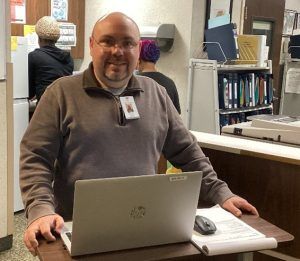
Mike took an indirect path to social work, gaining valuable experience in group homes, placement agencies, day programs and in hospice. Not surprisingly, all require the desire to help others.
“My favorite part of the job is connecting with residents,” Mike said. “I take so much away from the experience when I have meaningful engagements. And, at the end of the day, I want to help improve the lives of those in our care.”
Other members of the New Hope social work team are Leslie Robertson, Callie Wold, Kerri Scheiller and Amy Sinayoko.
Amanda “Mandy” Marshall, LSW, CCM, has been with Saint Therese of Woodbury for one year and is in wholehearted agreement with her colleagues about the skill set needed by social workers.
“We have to be flexible about our plans for the day and respond to the issues that come up; we have to prioritize and go with the flow,” she said. “The days are never the same and you have to accept that, whatever you had planned for the day, it most likely won’t happen.”
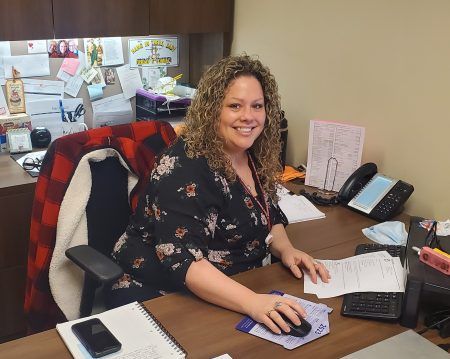
But with that uncertainty comes rewards. Just hearing a “thanks for what you do,” from a resident or family member is a gold star to Mandy. “We do a lot behind the scenes. We’re constantly communicating with the residents and their families because it can be very confusing. And if they have no family, we advocate on their behalf.”
She got into social work because she wanted to work in the healthcare field and help people but realized nursing wasn’t her calling. She said the three key qualities for a social worker are: to be flexible, be organized and laugh.
In addition to Mandy, other members of the Woodbury team are Mary Brownlow, LSW, discharge planner, and Jade Nei, assistant.
A heartfelt thanks to the entire Saint Therese social worker team.
About
At Saint Therese, our heartfelt purpose since 1968 has been a people first approach to living well by providing senior care and services where every life we touch feels welcomed, respected, and heard. We achieve this by doing ordinary things with extraordinary love every single day. Contact us to learn more.
